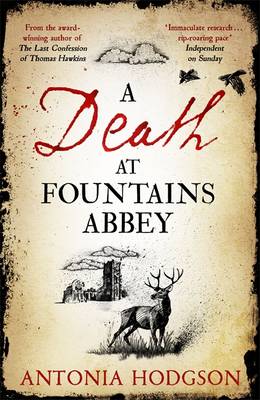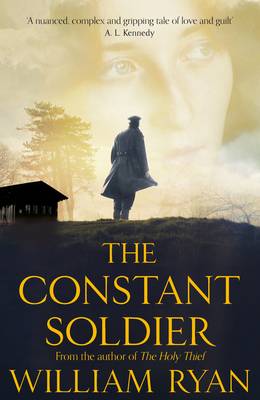Today, I’m delighted to be hosting the next stop on the Blog Tour for A Darker State by David Young, published by Bonnier Zaffre Books. For the tour I have a fabulous interview with the main protagonist from the series, Karin Muller, who I’m sure everyone would like to know a bit more about – although I warn you it was very difficult to get much out of her…
The Blurb:
For the Stasi, it’s not just the truth that gets buried . . .
The body of a teenage boy is found weighted down in a lake. Karin Müller, newly appointed Major of the People’s Police, is called to investigate. But her power will only stretch so far, when every move she makes is under the watchful eye of the Stasi.
Then, when the son of Müller’s team member goes missing, it quickly becomes clear that there is a terrifying conspiracy at the heart of this case, one that could fast lead Müller and her young family into real danger.
Can she navigate this complex political web and find the missing boy, before it’s too late?

Interview:
Location: East Berlin
Interviewer: Rachel Emms, (RE), Reporter.
Interviewee: Oberleutnant Karin Muller, (KM), Major of People’s Crimes.
RE: How did you feel coming back to work so soon, leaving behind your newborn twins? Especially leaving them in the care of your grandmother? How long have you known her?
KM: First let me say it is highly irregular for a reporter from the BRD or one of the fascist imperialist nations to be permitted to talk to an officer of the People’s Police. However, you have produced a signed authorisation. My deputy, Comrade Hauptmann Werner Tilsner is taking steps to check the authenticity of your documents at this very moment, and should we find any irregularities you will find yourself placed under arrest and detained here at our headquarters in Keibelstrasse, and the consular officials of your country will be informed. We will also be checking whether you crossed the Anti-Fascist Protection Barrier under false pretences.
I also have to warn you that I will not answer questions about any of our ongoing inquiries to you or indeed any reporters from the Republic either. This could jeopardise our investigations.
Your question about my children is a very personal one. However I am prepared to answer it this way. It is the duty of every woman and man in the Deutsche Demokratische Republik to play his or her part in working for the success of the workers’ and peasants’ state. Why should mothers be any different? All women should work for the good of the state and its workers be they mothers or not. It is true that my twins are currently being cared for by my grandmother, but the crèches, nurseries and preschool education in the Republic are some of the best in the world and I will have no hesitation in letting my children join the education system at the correct time. The day my son or daughter comes home singing the well-known song “I want to be a Volkspolizist” will be a very proud day for me.
The question about how long I have known my grandmother is a personal one that I am not prepared to answer. However, as the first female head of a murder squad there are a number of official publications that mention me that you could consult. VEB Buchveröffentlichkombinat Bonnier Zaffre have two titles I can recommend, Stasi Child and Stasi Wolf which have details of my career and life up to this point. Any details of current investigations that the People’s Police wish to release are – or soon will be – available in a document entitled A Darker State.
RE: I decide to try my luck, hey you only get one interview with Karin Muller. What do you think happened to that poor boy who drowned? I heard he was only young.
KM: As I explained in my first answer, I am not prepared to answer anything concerning People’s Police operations. You will have to consult the official documents. I recommend A Darker State.
RE: I try to push her again. I’ve heard whispers about Markus Schmidt disappearing, is it true? He’s your forensics guy’s son isn’t he?
KM: I am not prepared to answer anything concerning People’s Police operations.
RE: She really isn’t budging. I scratch my nose with the end of my pencil. Do you think it’s connected?
KM: I’m wondering if perhaps you have something wrong with your hearing, or your ability to understand German? I repeat, I am not prepared to answer anything concerning People’s Police operations.
RE: Do you trust everyone on your team? I’ve heard they have spies everywhere….
KM: You have been watching or reading too much counter-revolutionary propaganda, Ms Emms. Should you wish to re-educate yourself, I can recommend some of our more balanced current affairs television programmes such as Der schwarze Kanal. Every People’s Police officer swears an oath to, and I quote, “be loyal to my socialist fatherland, the German Democratic Republic and its government at all times, to keep official and state secrets, and to strictly obey laws and instructions”. I think that answers your question sufficiently well.
RE: I’m really not getting anywhere, and to be honest I’m starting to feel a little uneasy. What made you want to fight crime? Especially at this dangerous time?
KM: Once we have created the ideal socialist state, there will be no need for police force or any agency to suppress the proletarians. However, while there are still counter-revolutionaries trying to undermine that, I will, without reservation — under risk of my life — protect the socialist social, state and legal order, the socialist property, the personality, the rights and the personal property of the citizens against felonious attacks.
RE: Are you afraid of the Stasi?
KM: If you are referring to the Ministry for State Security, or MfS, then please give it its proper name. The goals of the MfS and the Volkspolizei are the same. The MfS is the sword and shield of the Socialist Unity Party of Germany.
RE: I think it was a big mistake coming here. Don’t you ever feel like packing it all in? Leaving the Stasi to it? Everyone else does….
[Hauptmann Werner Tilsner re-enters the room with two guards and whispers in Müller’s ear]
KM: I’m afraid, Ms Emms, that your papers, as I suspected, have proved to be false. These officers will be handing you over to agents of the Ministry for State Security. I can assure you that they will not be as accommodating as myself. I hope you will enjoy your stay in our socialist republic. But I doubt you will find the prisons at Hohenschönhausen, Hoheneck or Bautzen as comfortable as your fascist imperialist hotels back home.
RE: Prison? I gasp.
Big thanks to David Young for answering my questions, on behalf of Karin Muller – a formidable woman I certainly wouldn’t want to mess with, especially after locking me up in prison!
About the Author:

David Young was born near Hull and, after dropping out of a Bristol University science degree, studied Humanities at Bristol Polytechnic. Temporary jobs cleaning ferry toilets and driving a butcher’s van were followed by a career in journalism on provincial newspapers, a London news agency, and international radio and TV newsrooms. He now writes in his garden shed and in a caravan on the Isle of Wight, and in his spare time supports Hull City AFC.
To find out more about David Young, follow him on twitter @djy_writer.
Sound intrigued? If you haven’t read any of the series yet by David Young I would highly recommend!
A Darker State is the third in the Karin Muller series and can be ordered from Amazon here.
Don’t forget to check out all the other stops on this fabulous blog tour!









